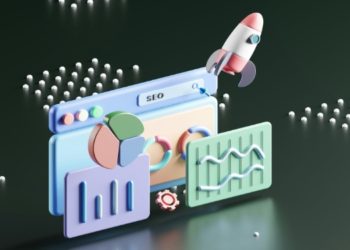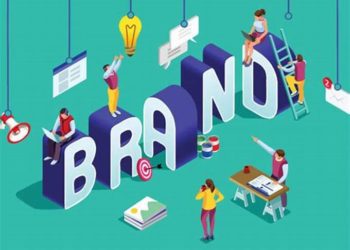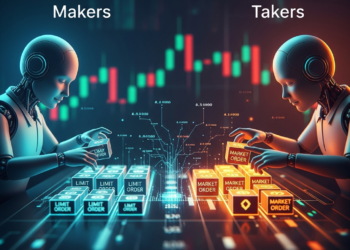In recent years, businesses have increasingly turned to AI to generate content. This has allowed them to scale their marketing efforts and reach a much wider audience. However, the impact and effectiveness of AI-produced content, especially for B2B lead generation, have both become hot topics for discussion.
On one hand, AI is making it easier for companies to automate, scale and enhance outbound marketing efforts, saving them time and money. But on the flip side, there’s a bit of concern about whether AI can truly engage potential clients the way humans do.
In this article, our goal is to explore the potential pitfalls of AI-generated content for B2B lead generation and whether it actually improves lead gen efforts or if it detracts them from the authenticity and quality necessary to engage potential clients effectively.
We’ll also examine the strategies every lead generation agency should adopt in order to strike the perfect balance between efficiency and personalization in their content creation efforts.
The Rise of AI-Generated Content in B2B Lead Generation
It’s no secret that content, in all its forms, has always been (and will continue to be) an amazing resource for reaching, engaging and building trust with new audiences. However, nowadays, keeping up with content demands can be a real struggle.
This is where AI steps in. AI can take on much of the heavy lifting involved in creating content, allowing marketing teams to focus on more strategic or creative tasks and on adding that human touch to their content and outreach.
However, despite the obvious benefits, some argue that AI-generated content lacks the depth and nuance needed to resonate with B2B buyers.
Bear in mind that B2B customers are typically more informed and require a higher level of trust before making a purchase. This will require content that resonates on a personal level, something that AI, in its current state, might not always achieve.
The Cons of AI-Generated Content for B2B Leads
The issues with using AI-generated content for B2B lead generation go beyond its lack of depth and connection. Here are some other potential drawbacks to keep in mind:
- Inauthenticity: As we mentioned before, B2B sales are not just about exchanging goods or services; they are about building and nurturing relationships. Content that feels too generic, impersonal, or out of touch will not only fail to convert leads but can also repel or jeopardize the relationship with that prospect.
- Error Potential: One has to be very careful when launching AI-generated content and make sure to take the time to review and proofread it. It’s very common to find factual errors or nonsensical phrasing in AI-generated texts, since models are still under development, and these mistakes could damage your reputation and credibility.
- Limited Creativity: As we mentioned before, the way AI works is by following existing patterns and using the data it’s trained on, which is why its responses can become predictable and repetitive. This means you can’t rely solely on it to come up with the original and innovative ideas you need to stand out in a market where all the competitors are using the exact same tools.
- Poor Understanding of Buyer Personas: To engage with B2B buyers, you need to really understand them. This includes being able to recognize and consider that there are multiple buyer personas within the industry with different needs, motivations and challenges. And although AI can achieve some level of “persona” identification through patterns and data analysis, it may struggle to truly understand the nuances of human behavior and the complexities of B2B purchasing decisions, failing to tailor content that resonates on a deeper, emotional level.
Despite its limitations, AI-generated content still offers marketers great advantages that, when used strategically, can complement and enhance their B2B lead generation efforts.
Let’s explore some of the strategies companies and lead generation agencies can use to leverage AI while still maintaining the human touch that’s essential to convert B2B leads.
Strategies for Implementing AI when Generating Content
Now that we’ve explored the potential drawbacks of AI-generated content for B2B lead generation, let’s discuss how companies and marketing agencies can leverage AI for their content creation the right way.
Training and Fine-Tuning AI Models
It’s widely known that AI tools need to be continuously trained in order to deliver relevant and personalized responses. However, most people fail to invest sufficient time or effort to conduct training effectively.
By regularly feeding your AI content generation tool with relevant data, frameworks and ideas that are specific to your target audience and industry, you can significantly improve its ability to create content that resonates with your ideal B2B buyers.
Content Review and Quality Control
Nowadays, every company should implement protocols and processes to review and approve AI-generated content. This helps prevent errors or inconsistencies before it is published or sent out to potential leads and ensures that the content aligns with the company’s standard of quality and credibility.
There are many AI tools that can help with this process, checking for grammar errors or inconsistencies, but it is vital to involve a human reviewer in the final approval stage to ensure that the content maintains authenticity and aligns with the company’s brand voice and messaging.
A/B Testing and Optimization
Implementing A/B testing and optimization strategies has always been a highly recommended practice to measure how campaigns are performing and adapt accordingly.
You can experiment with different content variations and analyze performance metrics to refine your approach and maximize the impact of your lead generation efforts.
Content Research and Optimization:
When used correctly, AI can be a powerful tool for research, but one has to be careful to not over rely on this technology and always check the facts before launching your campaigns.
On one hand, AI can help gather and analyze vast amounts of relevant data and statistics to enrich your content and brainstorm with. But, on the other hand, its ability to evaluate, interpret and infer information is still under development. That’s why involving human expertise is crucial at this point to ensure the accuracy and credibility of the research AI provides.
Content Repurposing and Summarization
AI can easily summarize long-form content into shorter, digestible pieces for use on social media or other channels, maximizing the potential of the content.
Ultimately, while AI-generated content offers valuable opportunities for streamlining and enhancing B2B lead generation efforts, it’s essential to approach its implementation strategically and thoughtfully. By combining the efficiency of AI with the human touch of personalized content and relationship-building, companies can maximize the impact of their marketing campaigns and drive sustainable growth in the competitive B2B landscape.
So, Can AI Help B2B Lead Generation?
As we’ve seen through the article, AI is a powerful tool that can streamline content creation and enhance B2B lead generation efforts. However, it can fall short on the crucial aspects of building trust and deep connections with potential clients, both of which are essential for B2B sales.
The key takeaway is to find the right balance, AI should never be a replacement for human expertise and creativity. By using this technology strategically and focusing on the human touch, you can create high-quality, personalized content that resonates with your target audience and drives conversions.
David Prior
David Prior is the editor of Today News, responsible for the overall editorial strategy. He is an NCTJ-qualified journalist with over 20 years’ experience, and is also editor of the award-winning hyperlocal news title Altrincham Today. His LinkedIn profile is here.




![7 Best POS Software in the UK [2026 Edition]](https://todaynews.co.uk/wp-content/uploads/2026/02/7-Best-POS-Software-in-the-UK-2026-Edition-360x180.png)








































































